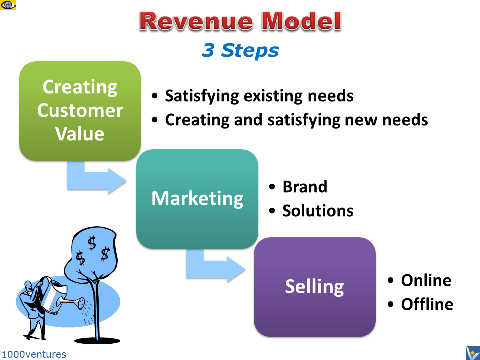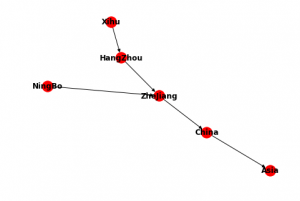
His doctoral course focuses on new technologies applications in accounting, the health sector, and the business model field. He is particularly interested in blockchain, and he is currently studying the impact of this “disruptive” technology in the accounting, auditing and accountability fields. Third, in terms of concepts analyzed, we find that the focus in management and control of the sources mainly involved accounting and auditing. More specifically, accounting and auditing reveal the different views of authors such as Coyne and McMickle (2017) and Dai and Vasarhelyi (2017), who are pioneering authors in this area. By contrast, accountability and blockchain are even younger than the entire research stream. Thus, few authors have demonstrated the role of blockchain in sharing both financial and environmental data.
Blockchain and the future of accountancy
Wang and Kogan (2018) extend the aim of Dai and Vasarhelyi (2017) to solve the trade-off between confidentiality and transparency and propose the use of zk-SNARK (zero-knowledge verification) schemes and homomorphic encryption. In this way, the data stored in a blockchain can be validated and summed without revealing any details. McCallig et al. (2019) propose a blockchain system that overcomes the privacy issues cash and bank voucher entries the use of multiparty security and modular arithmetic. However, their system requires communication between all involved entity customers or suppliers. In this area, researchers study how to apply blockchain to accounting and design data flows and architectural features. Auditors could extend their services to work as accounting blockchain information systems administrators or advisors (Bonyuet, 2020).
New Accounting Technology
- Specifically, the study uses the Technology Acceptance Model (TAM) to evaluate faculty members’ attitudes and perceived usefulness of blockchain adoption, while also investigating how organizational support (OS) influences these intentions.
- There is already evidence to show how blockchain may reduce costs in the finance industry (e.g. Fanning and Centers, 2016; Kokina et al., 2017).
- Examining the accounting, auditing and accountability literature, Schmitz and Leoni’s (2019) article is one of the first to provide scholars with a structured research plan.
Teams, management and government bodies implementing blockchain and making decisions based on data obtained from blockchain will also need new skills to adapt to the changing environment (Pimentel et al., 2019; Siew et al., 2020). Therefore, we propose that universities and higher education institutions should change and improve the curriculum of accounting and finance programmes to help students develop the above-mentioned skills. It is essential to start making the changes now as current students will soon become accounting and auditing practitioners as well as managers working with blockchain and other disruptive technologies. This study’s analysis combined a structured literature review with citation analysis, topic modelling using a machine learning approach and a manual review of selected articles.
Practical implications
This is achieved via a triple entry accounting system that, essentially, maintains three ledgers, one each by the seller, the buyer and a public set of (cryptographically authorized) records. The public set represents virtually irrefutable evidence of the underlying transactions. It is important to note that organizations can control access to the data, both in terms of who can access the data and what data can be accessed. The literature review reveals a pressing need for legal frameworks to govern blockchain technologies and regulate cryptoassets. Comprehensive work by regulators and policymakers may help implement and spread these technological innovations further, opening new sources of financing for companies. There is also a need to work on legal and taxation policies for tokens, bitcoins and other cryptocurrencies so that they become valuable tools and stable assets in capital markets.

However, Table 4 highlights the journals specializing in improving and facilitating the research, education and practice of advanced information systems, cutting-edge technologies and AI in the accounting, information technology and management advisory system fields. The interdisciplinary conference proceedings focused specifically on technological innovation. The authors wish to thank Warren Maroun and the two anonymous reviewers for their insightful and constructive suggestions that helped to strengthen our contribution. The authors are also thankful to Filippo Zatti and the research unit Blockchains and Artificial Intelligence for Business, Economics and Law (BABEL) for their expert insights into the complex topic of blockchain technology. Technical challenges and research opportunities”, Decision Sciences, Vol. The main aim of the present study is to review the literature on the use of blockchain in accounting practice and research and to define potential opportunities for further investigation.
Digital learning materials via BibliU

The application of blockchain to supply chain management is particularly intriguing in relation to the monitoring of workers’ rights, slavery and unethical behaviors because it contributes to tracking and assuring the entire process. We believe it is urgent to fill this gap with systematic insights into the potential of and challenges facing blockchain technologies in accounting practice and research. The exponential growth in an increasing number of open-source projects related to blockchain smart contracts indicate that professionals in the financial services domainneed to familiarize themselves with and master this technology.
When faculty members feel supported by their university, they are more likely to perceive blockchain adoption as beneficial and necessary, thereby increasing their intention to adopt and integrate it into the curriculum. To the best of our knowledge, this study is the first to examine the current state of blockchain’s diffusion within accounting, auditing and accountability using a bibliometric and coding approach. Therefore, our contribution joins two methodological approaches in this field, starting from the research of Dal Mas et al. (2019), Dumay and Cai (2014), Massaro et al. (2016) and Secinaro et al. (2020). Our work contributes to a solid foundation for researchers who want to start future analysis in this research field. Zemánková (2019)’s analysis reviews the literature on blockchain and AI in accounting, focusing on smart contracts and smart audit procedures, highlighting current applications and tools developed by practitioners. Chang et al. (2019) find that a blockchain-based supply chain process could enable instant tracking, reduce costs related to updating information, improve cash liquidity, enable automatic payments and, in general, improve automation.
Stone and Wang (2009) also affirm this notion, highlighting how OS can foster a conducive environment for technology adoption within academic institutions. ATU positively influences the intention to adopt and integrate blockchain technology within accounting education. One approach to this integration is introducing blockchain concepts https://www.simple-accounting.org/ into existing accounting courses such as auditing, financial accounting, and management accounting. Additionally, ready-made educational accounting software that demonstrates blockchain’s mechanics can be employed, as suggested by Al-Hattami (2021, 2023), alongside other foundational tools such as SAP, Motakamel, and Onyx.

It maps the number of records identified, included and excluded and the reasons for exclusions. Gabriella Kusz was a principal, Strategic Initiatives, at IFAC where she supported accountancy’s leadership and innovation in the digital era. This effectively means that Person A has a copy of all of their information as does Person B, and as does the next person. In a decentralized environment, all participants have access to the same information and users can then choose to share it or not. Information will no longer need to be aggregated and stored in central databases as it will be stored everywhere at once and, if desired, under direct user control rather than the company offering the service.
As an accountant or auditor, you can adapt to stay competitive alongside blockchain. Thanks to the security and trust built into blockchain ledgers, your firm may even end up streamlining your services to stay competitive in a world of increasing data volume. Technology is pivotal in https://www.business-accounting.net/degree-of-financial-leverage-dfl/, offering unbreakable security and transparent record-keeping. Accountants must adapt to these tech-driven changes, which promise more strategic roles and less focus on traditional bookkeeping.
In line with McGuigan and Ghio (2019), we argue that accountants will not only have to understand the data on blockchain, they will also have to interpret and explain the implications of this information to management and other decision-makers. As a result, accountancy is likely to become a much more strategically oriented profession. As discussed in Section 5.1, most papers on the changing role of accountants are normative. They talk mainly about various assumptions over how blockchain may influence accounting.
Accountants will eventually need to represent as a mediator between clients and technologists. For this role, a strong understanding of blockchain accounting is necessary. The transparency level at which blockchain operates also limits the chance of misunderstanding among accountants.
A transaction cannot be deleted or edited, thereby creating an immutable audit trial. A transaction can only be changed by adding another transaction to the chain. Blockchain technology has the potential to be a useful tool, but should be regarded with skepticism when it comes to its utility and implementability in organizational settings.
Limitations of current accounting practices allow forpayments to sometimes be made to fake suppliersor transferred to fake bank accounts. For example,a fraudster can pose as an organization’s supplierand send an invoice with its own account number tothe organization. Or it could hack the email systemof a supplier and use it to send invoices and bankdetails to the victim organizations. However, thisrisk is removed when payments are processed byblockchain technology because all payments areverified by the supplier and recorded in the blockwith a transaction hash for later reference.
Accounting is the process that involves the recording and analyzing of all the financial transactions of a business. As a result, a smooth and convenient accounting system is necessary for the efficient functioning of a business. Finally, the introduction of blockchain technology is transforming accounting to another level.